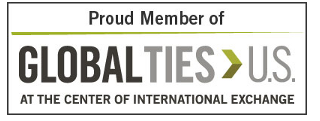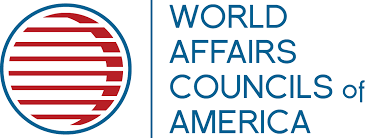About the World Affairs Council of NH
Mission:“The World Affairs Council of New Hampshire fosters civil dialogue on critical global issues affecting our state through programs that promote appreciation and understanding of international affairs.” Strategic vision:The World Affairs Council of New Hampshire envisions a world informed through global connections and mutual understanding. Values: Interconnectedness - We live in an inextricably interconnected world and engaging locally in learning about issues globally helps promote greater understanding, responsibility, and action. Respect - We cultivate tolerance and open mindedness, by creating an environment in which participants can disagree on issues in the spirit of good citizenship. We do not tolerate disrespectful or abusive speech and behavior. Honesty & Integrity - We build trust and credibility by doing what we say, being candid in how we work, and learning from our mistakes. Diversity - We feature representative voices, lived experiences, and diverse opinions that inform the range of critical global issues. Non-Partisan - We present multiple perspectives, encouraging diverse, fact-based, and civil conversations that deepen public understanding on complex issues. WACNH does not advocate positions on matters of policy. WACNH brochure: WACNH is a non-profit organization with 501(c)(3) tax-exempt status. | Who we are:The World Affairs Council of New Hampshire is a non-profit, non-partisan organization fostering learning, discussion and citizen involvement in world affairs since 1954. The Council is preparing the Granite State for a global future by creating and sustaining international connections that enhance our state's cultural, economic and civic life; building global knowledge and understanding through educational programs for communities and schools on foreign policy; and furthering the development of international leaders in partnership with the U.S. State Department.The Council is a member of the World Affairs Councils of America and Global Ties U.S. The Council is supported financially by memberships, program fees, donations from individuals and businesses, grants, and a small endowment. |
HISTORY:In 1954, just after the Korean War ended and in the midst of the Cold War, the Council on Foreign Relations, with the financial support of the Ford Foundation and the endorsement of the Department of State, decided to establish a “council on world affairs” in each state in the country. The goal of these councils was to spread greater knowledge of world affairs among American people. The fundamental assumption of this initiative was that, in effect, “America could not have an effective foreign policy without public support.” The Foreign Policy Association, an organization created in 1918 to counter the isolationist attitudes of the era, was designated the coordinating body of the system of world affairs councils. As a result, the New Hampshire Council on World Affairs, since renamed the World Affairs Council of New Hampshire, was established in 1954 by a group of twenty-two distinguished, concerned men and women who were active in the arts, medicine, dentistry, business, law, government, politics and education. Among the founding members and leaders were Judge Peter Woodbury, Robert P. Bass Jr., John H. Morison Sr., Susan McLane, John T. Holden, Jere Chase, Robert H. Reno and Dr. David T. Stahl. In 1955, UNH’s President, Dr. Eldon L. Johnson, provided the New Hampshire Council on World Affairs with office space, heat, light and logistical support along with a modest subsidy. In 1956, the Council was incorporated in the State of New Hampshire as a non-partisan, non-profit corporation under IRS Code 501(c)3 in order to spread knowledge of world affairs among the citizenry. Many organizations offered support to the Council in its early years, among them were the NH Council for Social Studies, the NH Council of Churches, the NH AFL-CIO, the NH League of Women Voters, the NH Council of Colleges and Universities, the United Nations Association, the Catholic Diocese of Manchester and Rotary and Kiwanis Clubs across the Granite State. Through these connections, the New Hampshire Council on World Affairs intended to mobilize as many citizens as possible in a quest for greater knowledge of international affairs and American foreign policy. It was also an early goal of the Council to foster citizen diplomacy and intercultural dialogue by having members actively meet international guests and foreign citizens. To this day, the Council continues to work cooperatively with other private, public, state, national and international organizations to fulfill its mission “to promote the widest possible understanding of world affairs among the citizens of New Hampshire”, to foster dialogue and effectively study global politics. In 1957, the Council convinced the House Foreign Affairs Committee to hold hearings in New Hampshire, the first ever to be held outside Washington, DC. In 1961, the Council faced extreme political criticism for inviting a TASS correspondent from the Soviet Union to join a round table discussion by journalists. To quell the outcry, the New Hampshire Attorney General wrote a declaration that specifically stated that the Council was not engaging in “un-American” activities. In a fitting coda to that incident, the Council held a luncheon in 2002 with eight Russian judges, who had been invited to the United States under the “Rule of Law” program. Executive Director Emeritus David Larson lead the organization from 1966 to 2001. Over the years, the NHCWA hosted famous speakers such as Allen Dulles, former director of Central Intelligence; John Foster Dulles, his brother and Secretary of State under President Eisenhower; Lt. General Leslie Grove, the Director of the Manhattan Project; Clement Atlee, the Prime Minister of the United Kingdom from 1945 to 1951; Dean Rusk, one of the longest serving U.S. Secretaries of State; and then-Ambassador George H.W. Bush, among other notable names. In June of 2003, members voted to change the name of the organization to the World Affairs Council of New Hampshire. The Council has also moved across the southern part of the Granite State. In 2002, the Council moved its office to Pleasant Street in Concord. However, the Council shared this office with a local Realtor and space was limited, so around 2004 WACNH made Southern New Hampshire University for 20 years. In 2025, the Council ventured out on its own, opening a downtown Manchester office with the goal of expanding its reach and expanding awareness. ARTICLES OF AGREEMENT - 1956:
"The object for which this corporation is established is community education in world affairs... 'to create an informed public opinion as the democratic basis for a sound foreign policy, to operate as a coordination point and service center for interested organizations, advocating no specific policy or action, and to promote the widest possible understanding of world affairs as an essential step toward lasting peace."
|


